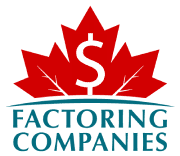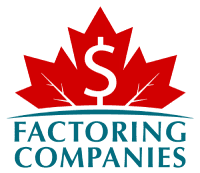
Cash flow is the lifeblood of any manufacturing business, yet managing it effectively can be a significant challenge. Long payment cycles, high production costs, and unexpected supply chain disruptions often leave working capital stretched thin. That’s where factoring for capital comes into play. By converting unpaid invoices into immediate cash, manufacturers can secure the funds they need to maintain steady operations and fuel growth, all without adding debt. In this article, we’ll explore how factoring works, its key benefits for manufacturers, and how to select the right partner to support your business.
The Cash Flow Challenges Impacting Working Capital for Manufacturers
Managing cash flow is critical for maintaining healthy working capital in the manufacturing sector. It’s not just about keeping the lights on. Cash flow directly affects your ability to cover day-to-day operations, invest in growth, and respond to unexpected expenses. Whether you’re running a small operation or a large facility, you probably recognize some of the following challenges.
Long Payment Cycles
In manufacturing, long payment cycles are the norm. You might ship out a product today, but you’re left waiting 30, 60, or even 90 days to get paid. If you’re dealing with a big client or a government contract, that waiting game can feel like forever.
High Upfront Costs
Manufacturers often face substantial upfront expenses, including costs for raw materials, labour, and maintaining production lines. In fact, Canadian manufacturers spend around 60 percent of their revenue on materials and supplies alone, according to Statistics Canada. This significant spending highlights the pressure to carefully manage cash flow to ensure steady operations and continued growth.
Long Cash Conversion Cycle

The manufacturing cash conversion cycle takes anywhere from 46 to 111 days, per North Shore. That’s the span from investing capital to receiving it back through your paid invoice. While some niches, such as electronics and technology, often fall on the shorter end, others, such as those serving the automotive industry, typically wait much longer. Leaving capital tied up for so long can make it impossible to cover daily needs, especially for smaller manufacturing companies that don’t have the same type of reserves and access to capital that larger ones do.
Seasonal Fluctuations
Seasonality also plays a major role in cash flow variability. Certain manufacturing sectors experience sharp peaks and troughs depending on the time of year, such as increased demand before winter or during the construction season.
Supply Chain Disruptions
Nine in ten Canadian manufacturers say they’re experiencing supply chain issues, with the vast majority saying the impact of them is either “major” or “severe,” according to Canadian Manufacturers & Exporters (CME). Unpredictable supply chain issues can disrupt production timelines and strain your financial resources. From delays in raw material shipments to sudden price increases, these factors can cascade throughout your operations.
Pressure to Offer Flexible Payment Terms
To remain competitive, manufacturers are often required to offer flexible payment terms to clients, which can further complicate cash flow management. While extending payment terms may help secure key contracts, it also increases the financial burden on your business if payments are delayed.
What is Invoice Factoring for Manufacturers?
Invoice factoring is a valuable tool for manufacturers looking to improve their working capital. When cash flow is tied up in unpaid invoices, it can limit your ability to cover essential operational costs, like purchasing raw materials or paying your workforce. Factoring offers a solution by converting outstanding invoices into immediate cash. Instead of waiting weeks or months for customer payments, you can sell those invoices to a factoring company at a discounted rate, providing you with the cash you need to keep your business running smoothly. This helps bridge the gap between invoicing and receiving payments, ensuring that your working capital remains strong and flexible.
Factoring for Capital is a Fast and Simple Process
Here’s a step-by-step breakdown of the manufacturing factoring process.
- Issue an Invoice to Your Customer: After delivering goods, you send an invoice to your customer with payment terms (typically 30, 60, or 90 days).
- Sell the Invoice to a Factoring Company: Instead of waiting for the customer to pay, you sell the invoice to a factoring company. The factoring company purchases the invoice at a discounted rate, usually between 95 and 99 percent of its total value.
- Receive Immediate Cash: Once the invoice is sold, you get up to 95 percent of the invoice’s value almost immediately—typically within 24 to 48 hours. This cash can be used to cover your operating expenses, invest in new equipment, or manage other financial needs.
- Customer Pays the Factoring Company: When the invoice is due, your customer pays the factoring company directly. Once the full payment is collected, the factoring company will provide you with the remaining balance, minus their fees.

Invoice Factoring vs. Invoice Financing
Invoice financing options for manufacturing businesses are similar to factoring in that they both turn your invoices into working capital quickly. However, factoring does this through the sale of your invoices, and financing does this by using your invoices as collateral on a loan. With factoring, there’s no debt or interest to pay back. With financing, there is, as it works more like a traditional loan.
Factoring vs. Traditional Loans
There are many differences between factoring and traditional loans. We’ll cover a few below.
- No New Debt: With invoice factoring, you’re not borrowing money. You’re selling your invoices. This means it won’t impact your balance sheet or debt ratios.
- Quick Access to Funds: Traditional loans can take weeks or months to get approved. Factoring provides a much faster route to cash.
- Credit Focus: With loans, banks focus on your business’s creditworthiness. Factoring companies, on the other hand, are more interested in the creditworthiness of your customers. This makes factoring a viable option for businesses with limited credit history and allows for an easy approval process.
- Ongoing Flexibility: Factoring can be a flexible, ongoing solution. You can factor invoices as needed without the long-term commitment that comes with traditional loans.
Why Factoring is a Preferred Option for Manufacturers
In addition to the differences outlined above, factoring offers many additional benefits to manufacturing companies.
Improved Cash Flow
Factoring turns your invoices into immediate cash, providing a steady stream of working capital. This allows you to maintain operations, even when customers are slow to pay. Access to quick funds can be the difference between taking on a new order or turning down business due to cash constraints.
Easier Access to Funding
Securing a bank loan can be a lengthy and challenging process, especially for manufacturers with limited credit history. Factoring is often more accessible because the decision hinges on your customers’ creditworthiness, not just yours. This opens doors to financing for businesses that might struggle with traditional lending.
Flexibility to Meet Demand
Factoring offers flexibility to scale your financing in line with business needs. If you land a large contract or experience a surge in orders, you can factor more invoices without renegotiating terms or dealing with restrictive loan agreements. It’s a financing option that grows with you.
Stronger Supplier Relationships
With faster cash flow, you can pay suppliers promptly, potentially securing early payment discounts or favourable terms. Reliable payments can also help you build stronger relationships with key suppliers, ensuring smoother operations and fewer disruptions in your supply chain.
Focus on Business Growth, Not Collections
Instead of spending valuable time and resources chasing down late payments, factoring allows you to concentrate on running and expanding your business. The factoring company often handles collections, freeing up your internal resources to focus on core operations and growth.
Bridge Seasonal Gaps
For manufacturers affected by seasonal fluctuations, factoring provides a way to smooth out cash flow during slower periods. It ensures you have the funds to cover payroll, maintain production, and manage overhead costs year-round, regardless of seasonal revenue dips.
Supports Rapid Expansion
If you’re in a growth phase, quick access to cash through factoring can fuel expansion. You can hire additional staff, purchase new equipment, or take on larger contracts without worrying about traditional financing constraints or waiting for outstanding invoices to clear.
How to Choose the Right Manufacturing Factoring Company
Selecting the right manufacturing factoring company is crucial for maximizing the benefits of invoice factoring. Not all factoring companies are the same, and choosing the wrong one can cost you time, money, and stress. Here’s a step-by-step guide to help you make an informed decision.
Understand Your Needs
Start by assessing your specific requirements. Are you looking for a short-term solution to cover a seasonal gap, or do you need a long-term financing partner to support ongoing cash flow? Knowing what you want will help narrow down your options and find a company that aligns with your goals.
Check Industry Expertise
Choose a factoring company that has experience working with manufacturers. Companies familiar with the manufacturing industry will better understand the challenges you face, like long production cycles or high upfront costs, and can offer tailored solutions. Ask if they have clients in your niche or if they specialize in manufacturing.
Evaluate Rates and Fees
Factoring rates can vary significantly. Pay attention to more than just the discount rate. There might be additional fees for processing, late payments, or collections. Request a clear breakdown of all costs and compare offers from multiple companies to ensure you’re getting the best deal without hidden fees.
Assess Advance Rates and Terms
Look at how much of your invoice value you’ll receive upfront, known as the advance rate. This usually ranges from 60 to 95 percent, depending on the company and the creditworthiness of your customers. Consider whether the terms, like advance rates, fees, and payment schedules, fit your cash flow needs.
Check for Contract Flexibility
Some factoring companies require long-term contracts, while others offer more flexibility. Decide whether you want a one-time, short-term arrangement or a long-term commitment. Be cautious of companies that impose lengthy contracts with restrictive termination clauses.
Verify the Quality of Customer Service
A factoring company’s customer service can significantly impact your experience. Are they easy to reach? Do they respond quickly to inquiries? The relationship with your factoring partner should be collaborative, so make sure they’re approachable and supportive. Don’t hesitate to ask for client references to get a sense of how they handle communication and disputes.
Consider Additional Services
Some factoring companies offer extra services like credit checks, collections, and detailed reporting. These can be valuable, especially if you want to outsource certain tasks or get insights into your customers’ payment trends. Check if they offer services that align with your needs and add value beyond immediate cash flow.
Review the Factoring Process
Find out how the factoring process works from start to finish. How quickly do they evaluate your invoices? What’s the timeline for receiving funds after an invoice is approved? Understanding their procedures will give you a clearer picture of how the relationship will function day-to-day.
Check the Company’s Financial Stability
You want a factoring company that is financially stable and can handle your business’s cash flow needs without interruption. Look into their financial history, years in business, and reputation. An established company with a solid track record is generally a safer bet than a newer, less-proven provider.
Read the Fine Print
Before signing any agreement, carefully review the contract. Pay attention to clauses regarding fees, termination policies, minimum requirements, and obligations on both sides. If something seems unclear, don’t hesitate to ask for clarification or consult a financial advisor to ensure there are no surprises.
Get Matched with a Manufacturing Factoring Company
Because not all invoice factoring companies serve manufacturing companies, and those that don’t always have a strong track record, finding a factoring partner that truly understands your needs and can provide a great experience for you and your customers can be challenging. We’re happy to streamline the process by matching you with a factoring company that can help. To explore factoring solutions for manufacturing more, request a complimentary rate quote.
FAQs on Manufacturing Factoring for Capital
How does invoice factoring support cash flow management for manufacturers?
Invoice factoring supports cash flow management for manufacturers by providing immediate cash for unpaid invoices. Instead of waiting for customer payments, manufacturers can sell invoices to a factoring company and get funds right away. This quick access to cash ensures you have the resources to cover operating costs, buy materials, and meet payroll without interruptions. Factoring also eliminates the uncertainty of late payments, allowing for more predictable cash flow. Because it’s not a loan, it doesn’t add debt, keeping your financial position stable. With steady cash flow, manufacturers can focus on maintaining production and seizing new business opportunities, improving overall cash flow management and operational efficiency.
What are the benefits of leveraging factoring in the manufacturing industry for cash flow?
Leveraging factoring in the manufacturing industry provides manufacturers with fast access to cash by turning outstanding invoices into immediate funds. This helps stabilize cash flow, making it easier to manage day-to-day expenses like raw materials, wages, and production costs. Since factoring isn’t a loan, it avoids adding debt to your financial statements, maintaining a healthier balance sheet. It also allows manufacturers to take on larger projects or seasonal spikes without cash flow worries. By outsourcing collections to the factoring company, manufacturers can focus on core operations and growth. This flexibility makes factoring a reliable solution for maintaining steady cash flow in a dynamic industry like manufacturing.
How does improving liquidity with factoring in manufacturing benefit business operations?
Improving liquidity with factoring in manufacturing benefits operations by providing quick access to cash tied up in unpaid invoices. This boost in liquidity ensures that manufacturers have the funds needed to cover production costs, pay suppliers, and manage payroll without delays. Factoring also allows businesses to respond quickly to unexpected expenses or new opportunities, such as bulk material purchases or equipment upgrades. By converting receivables into cash, manufacturers maintain strong liquidity without adding debt, supporting smoother operations and reducing financial stress. This increased cash flow flexibility makes it easier to sustain production schedules and invest in long-term growth.
How does using factoring as working capital for manufacturers enhance financial stability?
Using factoring as working capital for manufacturers enhances financial stability by turning unpaid invoices into immediate cash. This cash injection helps cover essential expenses like raw materials, labour, and operational costs, without waiting for customer payments. Unlike traditional loans, factoring doesn’t create debt, keeping your balance sheet clear and allowing for more financial flexibility. With a steady source of working capital, manufacturers can maintain consistent production, handle unexpected costs, and seize growth opportunities without cash flow concerns. Factoring also simplifies financial planning, making it easier to manage budgets and ensure stable operations even during seasonal slowdowns or periods of rapid expansion.
What are the main cash flow challenges manufacturers face, and how can they overcome them?
Manufacturers often face cash flow challenges due to long payment cycles, high upfront production costs, seasonal revenue fluctuations, and supply chain disruptions. These factors can leave cash tied up and make it difficult to maintain smooth operations. One effective solution is invoice factoring. By selling unpaid invoices to a factoring company, manufacturers can access immediate cash, bridging gaps between expenses and income. This strategy helps maintain steady working capital, ensuring operations continue without interruption and allowing for investment in growth opportunities.
How does invoice factoring work for manufacturing companies, and is it a good option?
Invoice factoring involves selling outstanding invoices to a factoring company at a discount for immediate cash. Manufacturing companies benefit by quickly accessing funds tied up in receivables, allowing them to cover production costs, purchase materials, and pay staff on time. It's a good option for manufacturers facing long payment cycles or rapid growth, as it doesn’t add debt to the balance sheet. Since factoring relies on the creditworthiness of your customers rather than your business, it can also be a financing option for companies with limited credit history.
What are the advantages of using factoring to improve working capital in the manufacturing sector?
Factoring enhances working capital for manufacturers by converting invoices into cash without taking on debt. This quick access to funds supports day-to-day expenses, such as inventory purchases, payroll, and operational costs, reducing the financial pressure of waiting for customer payments. Additionally, factoring provides the flexibility to scale financing based on the volume of invoices, making it ideal for businesses with fluctuating demand or seasonal cycles. The added stability in cash flow also positions manufacturers to seize new business opportunities and navigate economic uncertainties with confidence.

About Factoring Companies Canada
Related Insights
Get an instant factoring estimate
Factoring results estimation is based on the total dollar value of your invoices.
The actual rates may differ.
CLAIM YOUR FREE FACTORING QUOTE TODAY!
PREFER TO TALK?
You can reach us at
1-866-477-1778
Get an instant factoring estimate
Factoring results estimation is based on the total dollar value of your invoices.
The actual rates may differ.
CLAIM YOUR FREE FACTORING QUOTE TODAY!
PREFER TO TALK? You can reach us at 1-866-477-1778











